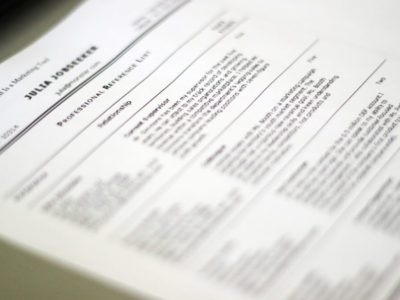“Hey, fyi I put you down as a reference on an app…if they call can you say that we volunteered together at the animal shelter? Kk thanks!”
I sent out a couple of those texts to my friends last year while job searching. Of course, the texts varied: one friend was a co-worker of mine while an older friend of mine was a manager for a store…whom I never worked for. Let’s just say that I never got a callback to any of these jobs.
According to cvtips.com, a resume reference is some one who can verify your credentials and all or part of the information you have written in your resume. References can be an essential part to seal the deal for your ideal internship or job. Here are some quick tips and common mistakes when it comes to references:
Pick professional references who know the value of your work.
These include professors, managers, coworkers and supervisors. A good reference should also know you well and can speak positively about you.
Ask the person for permission.
He or she won’t appreciate a random phone call from your potential employer without advanced warning. It might be a good idea to give your reference your resume as well—it will make it easier for them to talk about your achievements in addition to what they know about you.
Keep your list of references separate from your resume.
Create a new document with a header like "Professional Reference List." Keep the design consistent with your resume and cover letter, using the same heading, fonts and general layout. In general, your resume shouldn’t mention references unless the job requires you working in a home setting, such as a babysitter, personal assistant, etc.
Make it easy to contact the person.
Include his or her name, phone number, address and email in your list. For additional information, provide a short synopsis of your relationship with the reference and the number of years you've known each other.
What if you don’t have anyone you can go to as a professional reference? Work on building your relationships with them! Visit your professors' office hours more often, do more than the minimum work for your internship and talk to your coworkers during lunch breaks. They’ll acknowledge the effort you’re making, and will consider you a valuable employee for a future employer.



















